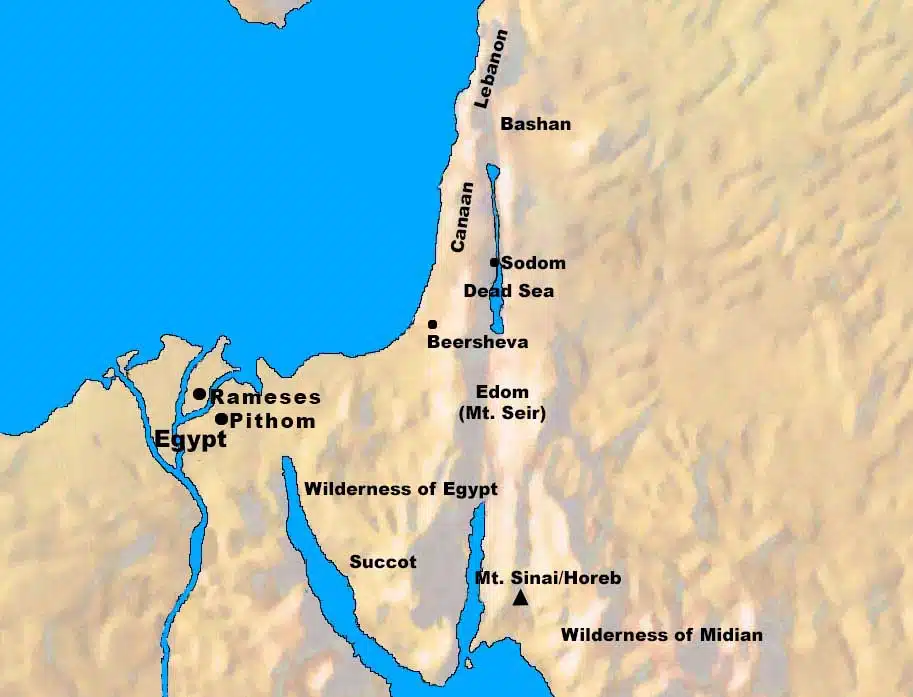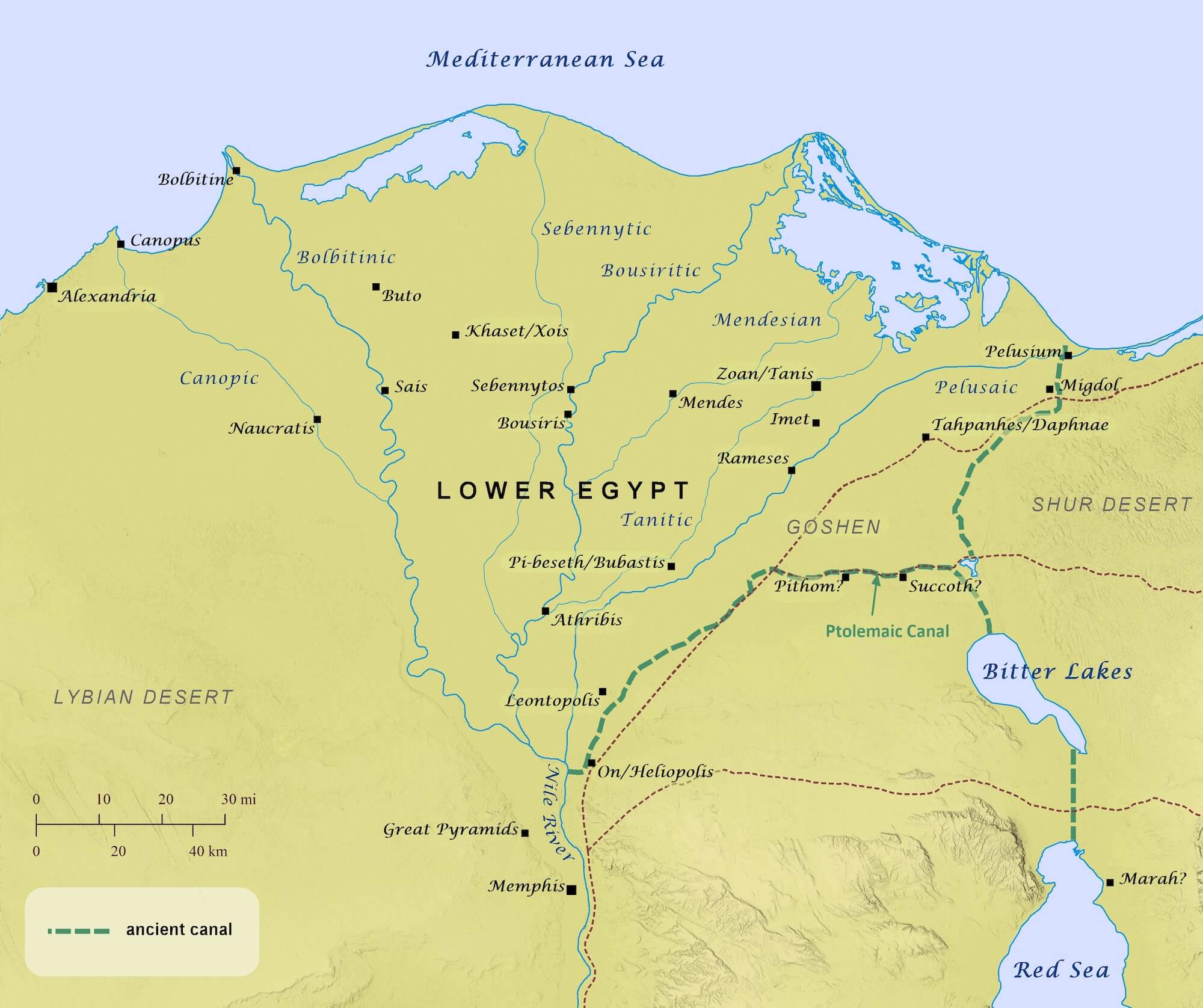The fifth plague is the second one in the second cycle of the nine plagues. It consisted of some kind of disease that affected livestock, not people. As in the second plague of the first cycle, there is no specific time that Moses was to confront Pharaoh. Like before, he was told to relay the message of the LORD along with a warning if Pharaoh disobeyed.
The fifth plague started the same way as the second one. The LORD told Moses to go to Pharaoh and speak to him what the He wanted him to say. As in the second plague, there was no time frame mentioned as in the first and fourth plagues.
The message Moses conveyed to Pharaoh began with the familiar command let My people go, that they may serve Me.
In verses 2 through 5, Moses detailed to Pharaoh the consequences if you refuse to let them go and continue to hold them. Once again, the command was clear – let the Israelites go worship the LORD or behold, the hand of the Lord will come with a very severe pestilence. The use of “behold” here was meant to get Pharaoh’s attention and press upon him the seriousness of the threat he faced. The fact that “the hand of God” was mentioned shows how grave the threat was. This phrase is used most often in the Bible to speak of the LORD’s judgment against one or more individuals or groups (Deuteronomy 2:15; Joshua 22:31; Ruth 1:13; 1 Samuel 5:6; Isaiah 9:16, 25:10 for examples). It can also signify control (Proverbs 21:1), empowerment (Ezra 7:6, 28; 1 Kings 18:46; Ezekiel 3:22, Luke 1:66), and a place of grace (2 Samuel 24:14; 1 Chronicles 21:13). Notice also that this plague was described by the LORD as “very severe.”
The exact nature of the “pestilence” referred to in verse 3 is not known. Some speculate that it was a strain of anthrax that was especially deadly to animals. In any case, the LORD says that the disease will be on your livestock which are in the field. In Egypt, livestock represented economic prosperity. The more livestock one owned, the wealthier one was. Thus, to destroy livestock was tantamount to destroying one’s wealth and livelihood. The Egyptian people were to be deeply affected by this plague.
Then He listed the types of livestock that would be affected. The disease would be on the horses, on the donkeys, on the camels, on the herds, and on the flocks. This listing of the types of animals that would be affected was meant to impress upon Pharaoh that the many animal deities of Egypt were targeted by the LORD.
In verse 4, in order to emphasize that the LORD was in complete control, Moses told Pharaoh that the Lord will make a distinction between the livestock of Israel and the livestock of Egypt, so that nothing will die of all that belongs to the sons of Israel. Not only was the LORD in control of the “what,” the Lord set a definite time for the plague to occur, saying in verse 5, tomorrow the Lord will do this thing in the land. Thus, He, not Pharaoh (see 8:10), controlled the “when” as well.
Verse 6 describes briefly the coming of the plague. It is a very concise account of a very severe plague. Everything that the LORD promised in verse 5 occurred. First, the Lord did this thing on the next day. Second, all the livestock of Egypt died. Third, of the livestock of the sons of Israel, not one died. The LORD fulfilled His word to the letter.
In verse 7, Pharaoh sent, and behold, there was not even one of the livestock of Israel dead. In other words, Pharaoh sent his own officials to Goshen to see if what Moses had said in verse 4 did actually happen. In spite of this miraculous protection of Israel’s livestock and flocks, the result of this plague is the same as the previous four – the heart of Pharaoh was hardened, and he did not let the people go. In spite of having verified that everything happening just as Moses said it would, Pharaoh remained obstinate, rebellious, and pompous.
This plague was devastating both to the Egyptian economy and to the Egyptian people. Also, in light of the fact that many animals were considered sacred by the Egyptians and that this plague targeted animals, it is safe to say that this plague was aimed to demonstrate the inferiority of the gods and goddesses of Egypt. For example, Osiris, the savior god, could not prevent the death of these animals. Apis (or Hapis) was a bull god. Mendes was also a bull god. Hathor, the goddess of love, was represented by the cow. She was depicted with the body of a woman and the head of a cow. These animals and others that were considered deities were killed in this plague – except in Goshen.
Biblical Text
Then the Lord said to Moses, “Go to Pharaoh and speak to him, ‘Thus says the Lord, the God of the Hebrews, “Let My people go, that they may serve Me. 2 For if you refuse to let them go and continue to hold them, 3 behold, the hand of the Lord will come with a very severe pestilence on your livestock which are in the field, on the horses, on the donkeys, on the camels, on the herds, and on the flocks. 4 But the Lord will make a distinction between the livestock of Israel and the livestock of Egypt, so that nothing will die of all that belongs to the sons of Israel.”’” 5 The Lord set a definite time, saying, “Tomorrow the Lord will do this thing in the land.” 6 So the Lord did this thing on the next day, and all the livestock of Egypt died; but of the livestock of the sons of Israel, not one died. 7 Pharaoh sent, and behold, there was not even one of the livestock of Israel dead. But the heart of Pharaoh was hardened, and he did not let the people go.
Check out our other commentaries:
-
Genesis 1:9-13 meaning
During the beginning of the third day of creation, God divides the seas and the dry land. Then, He creates plant life and vegetation....... -
Psalm 69:1-4 meaning
David implores God to save him from the imminent dangers threatening to sweep his life away like a flood. He is exhausted from crying out...... -
Obadiah 1:8-9 meaning
The LORD declares that He will destroy the wise men of Edom. Every citizen of Edom will be slaughtered....... -
Hebrews 13:17-19 meaning
We ought to submit to those in leadership over us. ...... -
Exodus 15:22-27 meaning
Verses 22-27 is the first account of a larger section of Exodus describing the three-month journey (19:1) from the Red Sea to Mount Sinai (15:22......




